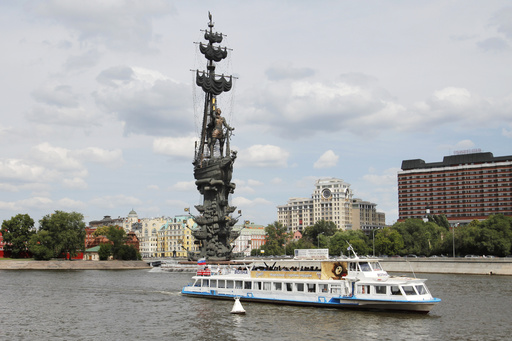Zurab Tsereteli, the distinguished Georgian-Russian sculptor, passed away on Tuesday at the age of 91. Tsereteli was renowned for his imposing and often debated creations, which marked his legacy in the field of monumental art. Early reports indicated the cause of his death as cardiac arrest, as confirmed by his assistant.
Tsereteli was born on January 4, 1934, in Tbilisi, the then capital of Soviet-era Georgia. His artistic journey saw him rise to prominence in the 1970s when he became an art director with the Soviet Foreign Ministry. Throughout this time, he traveled extensively, leaving his artistic imprint on Soviet embassies worldwide, including working on a notable summer house for Mikhail Gorbachev in Abkhazia.
The late sculptor, who often reflected on his path, shared in a 2013 interview that his education played a crucial role in his career, emphasizing a curriculum that combined architecture with monumental art. His skills found recognition beyond the Soviet realm, with monuments by Tsereteli installed in major international cities like London in 1989, and in front of the United Nations headquarters in New York in 1990.
Following the Soviet Union’s disintegration in 1991, Tsereteli relocated to Moscow where he cultivated a successful partnership with then-mayor Yuri Luzhkov. This connection ensured a steady stream of commissions, allowing Tsereteli to design various public spaces including squares and metro stations in Moscow, alongside erecting numerous large-scale monuments across the city.
Tsereteli’s characteristic style was often met with critique, especially concerning the massive proportions of his work that critics felt clashed with the surrounding architecture. Among his most disputable works was a towering 98-meter sculpture of Peter the Great erected in 1997 near the Kremlin, a piece that sparked significant public backlash.
In one instance of his ambitions outside Russia, Tsereteli proposed a statue of Christopher Columbus to New York City. Despite reported backing from prominent figures, the initiative failed to materialize in New York, with similar outcomes in Columbus, Ohio, and Miami. The statue eventually found a home in Puerto Rico.
In a nod to his contributions, in 2003, Tsereteli was bestowed Russian citizenship by President Vladimir Putin for his notable service to the country. Yet, with the ousting of Luzhkov as Moscow’s mayor in 2010, Tsereteli’s influence dimmed as new urban projects in the city favored Western architects.
Despite these changes, Tsereteli sustained his influence in the arts, serving as president of the Russian Academy of Arts and directing the Moscow Museum of Modern Art, which he had established in 1999. The breadth of Tsereteli’s work is reflected in a collection of around 5,000 pieces scattered across Russia, Georgia, and several other nations.



